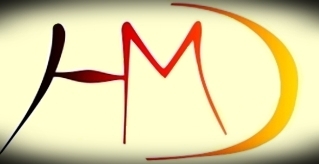In this subsection I would like to talk about the center of my profession/passion as a horse trainer: HOW and WHY do I train horses? In what do I believe in? With what do I agree or disagree in the sports world of this discipline?
DRESSAGE
The beautiful sport of Dressage is the longest way one can choose in the Equestrian World. Dressage indeed can be an addiction and it is more the feeling that you get out of it than anything else. For people who do not have the passion it can be as boring as watching grass grow. Sometimes the progress in our daily work feels exactly THAT slow. But for all of us who once felt this incredible moment of being completely ONE with your horse, the moment of perfect mutual (!) understanding and harmony - these people know what we are talking about and will agree that one wants to have this feeling back - no matter how long it takes. People who ride dressage are fascinated by watching it, because they know what it takes and how it feels. Dressage is art. Dressage is a dance. People who are non-dressage-riders seldom understand the hard work and great FEEL that is required to bring the beauty out of the horse. Almost everybody is impressed by a half-pass or one-tempi-changes, but a correct halt or a relaxed even, elastic walk does not thrill a lot of people that are not infected with the virus of dressage.
Furtheron I believe Dressage is not only suitable for warmbloods. It is beneficial for any breed and for any discipline one might ride. Warmbloods are bred for this sport and because of that often succeed due to their confirmation and movement. But there are so many non-warmblood breeds who go up the levels successfully including breeds such as Haflingers, Welch Cobs, Arabians, Connemaras etc. No matter what breed your horse is - Dressage is good for him/her.
HARMONY and APPRECIATION
More important than moving up the levels as fast as possible or high scores is the harmony and partnership with your horse. The journey. Obviously a harmonic ride earns higher scores, but the point is: we want a confident horse with charisma who's training brought out the maximum beauty that he carries within him. A horse that WANTS to perform, WANTS to be our partner, SEEKS to understand us with curiosity and trust.
To get there a horse might stay longer at a given level, but is happy and has learned to love his job. We have to listen to our animal and understand his grace and generosity. The horse is our partner, not our slave. Where the knowledge of a trainer ends, violence begins. Aggressive and forceful riding clearly shows the helplessness and insecurity of a person.
TRAINING AND RIDING DRESSAGE
Respect. Trust. Integrity. Basics.....Foundation.....Basics.....Foundation. It is worth it to take the long road. If the horse is healthy and the training is consistent and correct - you basically can not avoid a horse that climbs up the levels happily and willingly! A correctly trained horse is not magic. So how come there are so many people stuck in training and first level? Because one or the other is missing - consistency or correctness. In addition, the first 12 to 18 months of a horse's training are crucially important and requires more discipline, patience and skill than any of the following years and movements after that! TAKE YOUR TIME and it will pay off in the future development of the horse. The mind of the horse is much more difficult to train and to keep clear than it is to teach the movements to the horse. When you lose the horse's mind it is like breaking a horse's leg. You might get it back with long recovery - but it will never be the same. Unfortunately we have two problems standing in the way: The ego and money. A lot of trainers do not have the luxury to take it slow, whether they have owners to push them or think they feel a strong pressure to stay competitive in selling or showing horses. Often trainers brag about bringing a horse up one or even two levels in only a few months, and unfortunately they get admiration from people that say 'WOW - what a trainer - he/she is fast' confirming this kind of behaviour. Instead they deserve a skeptic look and a turned back. Fast training in dressage is not a smart thing to do. A horse that is trained fast in the beginning often loses his carrier before he has reached his full potential, mostly due to mental, sometimes due to physical overloads.






